One of the attractive features of Land-Rovers is the modular construction; the vehicle can be reduced to an enormous number of component parts. In England, Land-Rover enthusiasts are well served by the trade with almost everything being available. I was surprised on looking at the specialist magazines for the first time in my life, how cheap the parts are – engine bearings from about £12 for example. Used as I am to paying over £80 for set of Fulvia big-end shells I was quite shocked.
Work began in installing the revised oil cooler piping. There was to be no trouble in future: Bill had been busy since last autumn. Having experienced the miserable business of changing the oil filter, he had acquired a remote oil filter mounting, fitted in a place that allowed easy changing of the filter. In addition he had bought an oil pressure gauge, a notable lacuna in his complement of instruments; the sender for the gauge fits conveniently into the remote filter housing.
On fitting the original filter mount with its take-offs for the new cooler, I found that the Daihatsu engine already has an oil cooler of the water/oil type. Inspection showed that the water hoses feeding this were past their best so I made up new ones. The discovery of this cooler explained why I had noticed rather low oil temperatures on our journey to Paris (despite the fact that a thermostat is fitted). Bill decided that the new cooler would be held “in reserve” for hotter places and made up a simple blanking panel that can be quickly removed when necessary. The new hoses are industrial quality, made from PTFE with stainless steel brading and with proper threaded fittings; they will give no trouble.
Finding a source of “ignition on” power for the oil pressure gauge was not simple: the military Land-Rovers have most of their cabling enclosed in tough sleeves and all are connected via elaborate multi-pin connectors. I eventually broke into the heater circuit to find a suitable source, and at the same time re-wired the voltmeter since previously this had been on permanently.
The next task was to mount the gauge. There was very little space available, but finally I made an aluminium bracket to hold the gauge and managed to squeeze it in to the left of the speedometer panel. On firing up the engine later, we were happy to see that the oil pressure was absolutely to specification showing that the engine had not suffered from its near-death experience last year.
With the oil system now complete and in order, I turned my attention to the cooling fan. Since the engine conversion there had been no mechanically driven fan. The previous electric fan was rather small for its job and had failed. The vehicle has a Land-Rover 2.5 Tdi radiator fitted; this allows space for the very nice aluminium intercooler – also a Tdi part. Now whilst the rated power output of the Tdi engine and the Daihatsu are about the same (c. 110HP) the Daihatsu is 2.8 litres whilst the Tdi is 2.5. I suspect that the greater capacity was the cause of the overheating oil that had prompted the purchase of the new oil cooler – the Daihatsu probably needs a bigger radiator, although Bill assured me that the water only starts to get above normal temperature when long climbs are being undertaken. However I did recommend that a bigger radiator should be considered. Meanwhile Bill had bought a very powerful Kenlowe fan; its size can be guessed when I say that it consumes 25A! Mounting this was straightforward. I made up some brackets which fitted to the easily removable radiator housing; these are much nicer than the curious Kenlowe system that uses plastic clips that pass through the radiator core. Bill had already fitted a nice adjustable thermo controller, again much better than the Kenlowe one. So I reorganised the wiring with suitably thick cable to carry the large current and that was another job on the list ticked off! The fan produces a very powerful flow of air and should be most effective on those alpine passes I think.





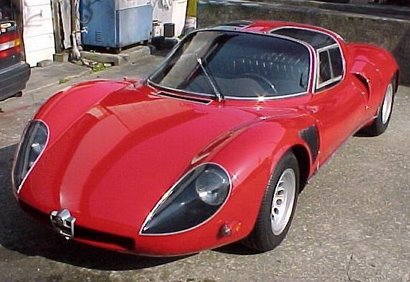
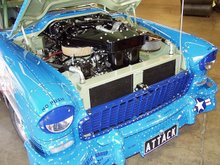
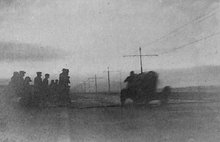

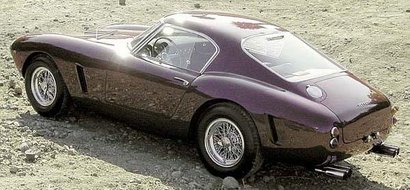
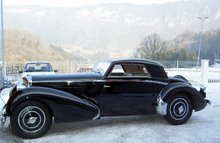
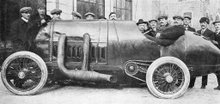


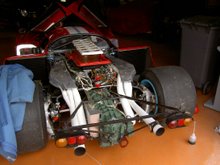

No comments:
Post a Comment